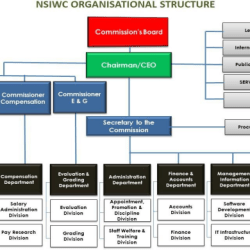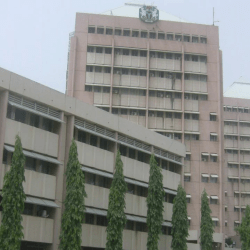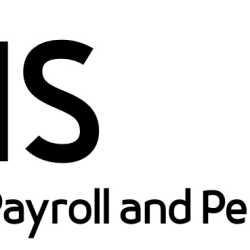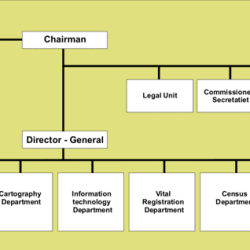The National Salaries, Incomes and Wages Commission (NSIWC), established by Decree No. 99 of 1993—now recognized as Cap N72 in the Laws of the Federation—was created to oversee and address various aspects of compensation within Nigeria’s Federal Public Service. NSIWC’s core functions encompass handling remuneration-related matters, administering the National Minimum Wage, reviewing Federal Public Service pensions, conducting research into public service pay structures, and managing comparability surveys and salary administration regulations across the country.
Key Responsibilities of NSIWC:
- Setting and Reviewing the National Minimum Wage: NSIWC plays a pivotal role in proposing adjustments to the National Minimum Wage, ensuring fair compensation across federal service sectors.
- Pension Review: Part of its mandate includes the periodic review of pension structures for federal public service retirees to align them with current economic conditions.
- Research and Surveys: The Commission conducts research on various aspects of remuneration, including pay comparability surveys and regional pay studies, enabling data-driven policy adjustments.
- Salary Administration and Clarifications: By issuing guidelines and clarifying government pay policies, NSIWC ensures consistency and fairness in salary and wage administration nationwide.

2023 Review Highlights:
During the latest annual review, NSIWC received numerous requests from government agencies for the reassessment of staff salaries, allowances, fringe benefits, and overall service conditions. Following careful review and recommendations to the Presidential Committee on Salaries, select pay adjustments were approved, including a specific allowance for employees on the Consolidated Public Service Salary Structure (CONPSS), effective January 1, 2023.
NSIWC also provided clarifications on government pay policies to maintain transparency, prevent misinterpretations, and support seamless salary administration, contributing to industrial harmony and ensuring workers receive appropriate compensation as per established guidelines.
Initiatives and Surveys Conducted in 2023:
To strengthen its oversight, NSIWC engaged in several targeted initiatives:
- Job Classification Exercise (JCE): Conducted in the Federal Ministry of Communication and Digital Economy, alongside select affiliated agencies, to standardize job roles and corresponding pay grades.
- Productivity Audits and Improvement Schemes: Implemented across various Ministries, Departments, and Agencies (MDAs) to optimize efficiency and align pay structures with productivity levels.
- Incomes Survey of the Informal Sector: Aiming to gather data on earnings within the informal economy to guide wage policies and improve living standards.
- Private Sector Remuneration Survey: Analyzed real and appropriate wages to benchmark public sector compensation with private industry standards.
- Salary Inspections in Public Service Agencies: Ensured compliance with government salary standards across selected public agencies.
Commitment to Stakeholders
NSIWC reaffirms its dedication to maintaining its annual report as a valuable reference for stakeholders, ensuring it fulfills its purpose by providing insights and up-to-date information on wage policies and administration.

The Commission’s ongoing efforts aim to facilitate a well-regulated, fair, and transparent salary administration system within Nigeria’s public service, contributing to a stable and productive workforce.
Extended Role of the National Salaries, Incomes, and Wages Commission
The National Salaries, Incomes and Wages Commission (NSIWC) stands as an essential regulatory body in Nigeria, managing various facets of remuneration that directly impact both public and, indirectly, private sector employees. By monitoring wage structures, pensions, and allowances, the Commission contributes to the broader goals of economic stability and equitable income distribution across Nigeria.
Through its mandates, the Commission seeks to:
- Reduce Wage Disparities: By regularly evaluating public sector salaries and aligning them with relevant private sector benchmarks, NSIWC helps ensure that workers across sectors are compensated fairly, considering inflation and market standards.
- Ensure Compliance with Minimum Wage Legislation: As an enforcer of the National Minimum Wage, NSIWC not only sets standards but also engages in enforcement activities to make sure all federal government entities comply.
- Strengthen Public Sector Retention: By refining salary structures and allowances, NSIWC aims to retain skilled professionals within the public sector who might otherwise be drawn to higher-paying opportunities in the private sector.
2023 Program Highlights and Outcomes
1. Review and Adjustment of Allowances and Benefits
In response to submissions from various federal agencies, NSIWC reviewed and recommended salary adjustments, most notably introducing a peculiar allowance for workers under the Consolidated Public Service Salary Structure (CONPSS). This adjustment, effective from January 1, 2023, seeks to address cost-of-living increases and support workers’ financial stability. The peculiar allowance is a strategic move to alleviate the pressures of inflation on public service employees and is expected to help bridge the gap between the cost of living and existing wages.

2. Job Classification Exercise (JCE)
The Job Classification Exercise (JCE) conducted in the Federal Ministry of Communication and Digital Economy and related agencies sought to categorize and standardize roles, ensuring that job titles and responsibilities align with salaries and career paths. This exercise is especially vital in departments undergoing rapid modernization, where roles evolve quickly, such as in technology-focused ministries. The JCE provides clear frameworks that define job responsibilities and compensation, facilitating better organizational structure and workforce management.
3. Productivity Audits and Improvement Schemes
Productivity audits aim to align wage levels with productivity, assessing whether employees’ outputs justify their pay scales. By implementing Productivity Improvement Schemes, NSIWC assists MDAs in identifying bottlenecks, streamlining tasks, and fostering a culture of efficiency. This initiative reflects NSIWC’s broader goal to not only regulate salaries but also promote performance-based reward systems, enhancing motivation and accountability in the public workforce.
4. Incomes Survey of the Informal Sector
Recognizing the informal sector’s significance, NSIWC conducted an incomes survey to gain insight into earnings, challenges, and working conditions. This information is crucial for understanding the economic realities of a large portion of the workforce that operates outside formal employment, shaping policies that can improve income levels, job stability, and eventual integration into formalized systems.
5. Private Sector Remuneration Survey and Public Sector Wage Analysis
The private sector remuneration survey conducted by NSIWC assessed the income landscape across different industries, enabling the Commission to better align public sector wages with private sector trends. This exercise is critical, as it enhances the comparability of public service salaries with private industry standards, ensuring that public sector wages remain competitive and reflective of economic conditions.

6. Salary Inspections and Compliance Checks
The Commission’s salary inspections across selected public service agencies are part of its oversight mandate to ensure that public institutions adhere to salary standards and policies. These inspections are an accountability measure that reinforces compliance with federal pay guidelines, confirming that approved salaries and benefits reach employees as intended.
The Broader Impact of NSIWC’s Activities
1. Economic Stability
Through wage adjustments, NSIWC aids in maintaining economic stability. By adjusting salaries to keep pace with inflation, NSIWC’s work prevents excessive wage disparities and mitigates the risk of economic dissatisfaction, helping stabilize consumption patterns and living standards.
2. Industrial Harmony
NSIWC’s policies and oversight contribute directly to industrial harmony within the federal workforce. By clarifying pay policies and resolving salary disputes proactively, the Commission minimizes the potential for strikes and other disruptions, fostering a more cooperative and productive public sector environment.
3. Enhancing Public Service Efficiency and Attractiveness
With structured salary regulations and job classifications, NSIWC plays a central role in making the public service more attractive to skilled workers, reducing turnover, and maintaining institutional knowledge within government entities. In particular, new allowances and productivity-linked remuneration schemes offer added incentives, making public sector roles more competitive with private sector opportunities.
4. Data-Driven Policy Making
By conducting detailed surveys on wages and productivity across both public and private sectors, NSIWC empowers policymakers with data on compensation patterns, sectoral demands, and regional wage variations. This information is essential for informed policy making and setting equitable salary benchmarks that reflect the country’s socio-economic realities.
Future Directions for NSIWC
To continue achieving its mission, NSIWC has outlined potential future initiatives:
- Expanding Surveys to Regional Levels: Broadening income surveys to cover all regions of Nigeria will improve data quality, offering more granular insights that can influence regional wage policies and address regional pay disparities.
- Digital Transformation of Salary Administration: By embracing digital technologies, NSIWC aims to streamline payroll processes, enhance record-keeping accuracy, and simplify wage policy dissemination to ensure compliance.
- Public Engagement and Transparency: Increasing public awareness of NSIWC’s activities and wage policies can boost stakeholder understanding and foster trust, making salary administration more transparent and widely understood.









